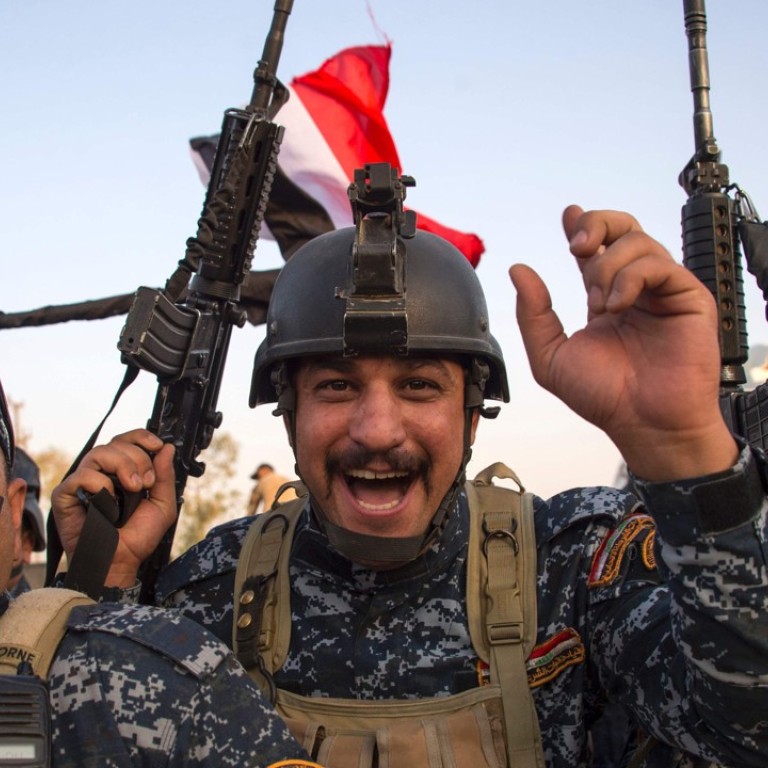
Islamic State is not a spent force yet
The terrorist group may have lost Mosul, its so-called capital in Iraq, yet its influence is wide-reaching and the war is far from over
The liberation of Mosul from the Islamic State is the biggest defeat yet for the most dangerous international terrorist group. Iraqi and American forces and their allies are rightly celebrating the end of the nine-month fight to take back the city in Iraq from where a caliphate was declared in June 2014. The extremists have over those three years lost about 60,000 fighters, including many leaders and two-thirds of the territory they once controlled and their capital, Raqqa in Syria, is surrounded by American-led militias. But a victory here and there will not spell the end of IS, which has adherents around the world, nor will it prevent the rise of similar radical organisations.
Iraqi Prime Minister Haider al-Abadi has made much of the victory. The taking back of Mosul is highly symbolic, the city having been IS’ de facto capital in Iraq and the centre from which the group overran large parts of the country’s north and west. But while he can take pride in the fighting prowess of his troops, the celebrations have to be short-lived. Much of Mosul has been destroyed and a huge reconstruction effort is necessary for the return of displaced people, while the fight against the extremists now has to move on to three other Iraqi areas.
But even militarily defeating IS will not guarantee peace. Already the group is returning to its roots as an insurgency force, with bombings and attacks the basis of its strategy of sowing fear and violence. The 25 million Sunni Muslims living between Baghdad and Damascus have been alienated by their Shiite, Iranian-backed, governments and are easy recruits for IS and other radicals. Demand for vengeance is growing and Iraq’s neighbours are only too willing to support sides to increase their sphere of political and economic influence.
The ambitions of Kurds also pose a challenge. Their fighters have played an instrumental role in IS’ losses and they have used the battles to seize territory for an independent homeland. A referendum for independence has been called for September and an affirmative vote could spark anger from the Iraqi government and Sunnis and outrage from Turkey and Iran. Abadi, his country riven by political and economic problems, is ill-prepared to handle the challenges ahead.
Poor governance and sectarianism were behind the rise of IS and those conditions still remain in Iraq and civil war-torn Syria. The caliphate also remains strong online and its ideology continues to spread among Muslim communities around the world; recent attacks in Britain proved that the threat has not diminished, despite increased security and intelligence and cooperation between governments. IS’ defeat in Mosul is welcome, but it is just a small part of the battle against extremism.

